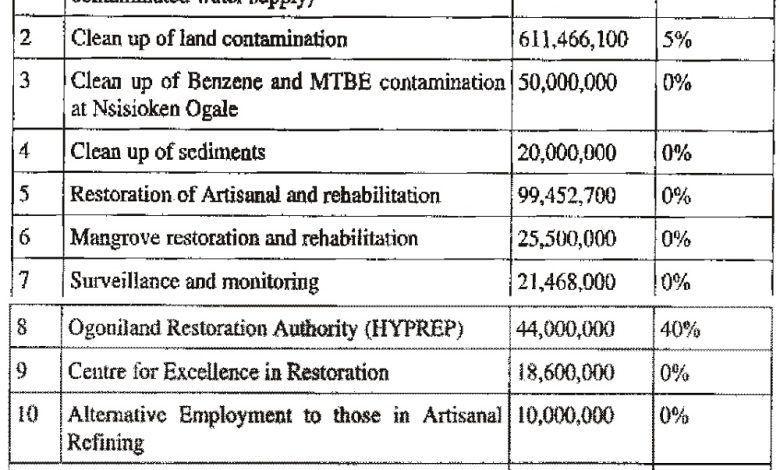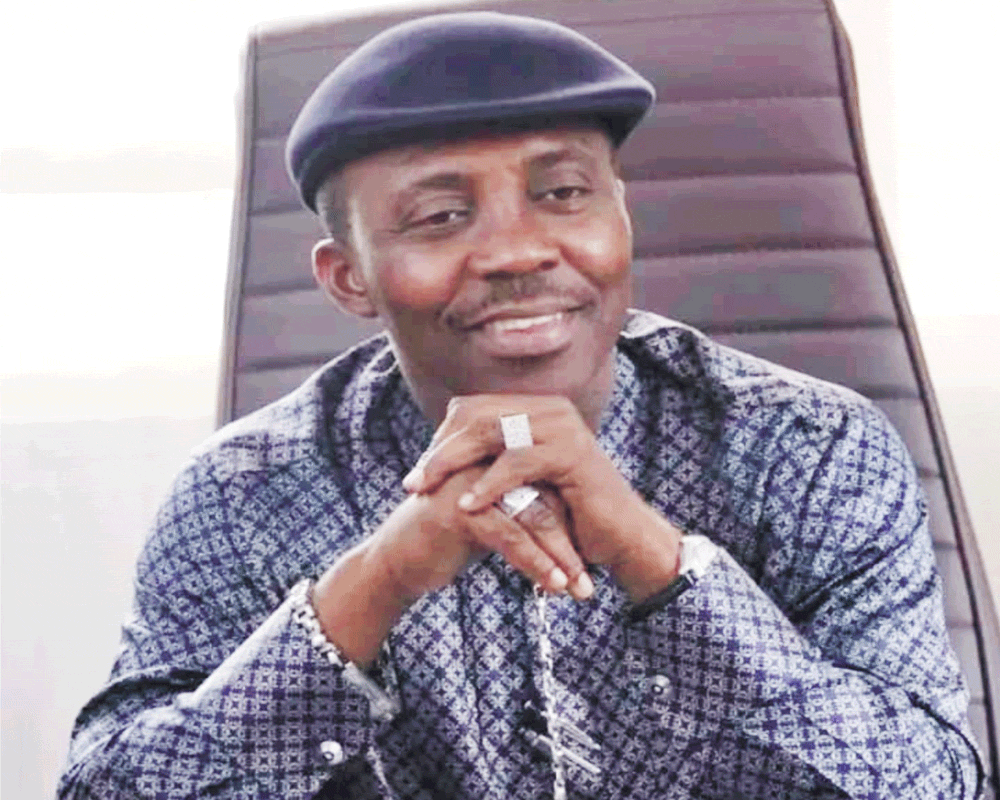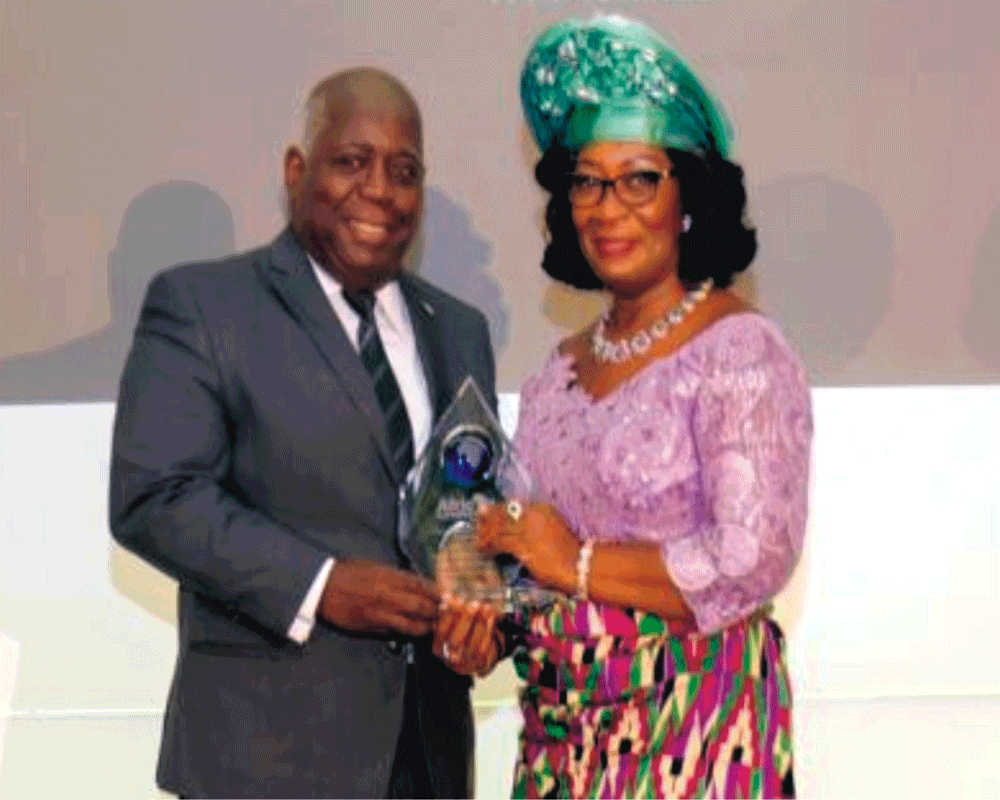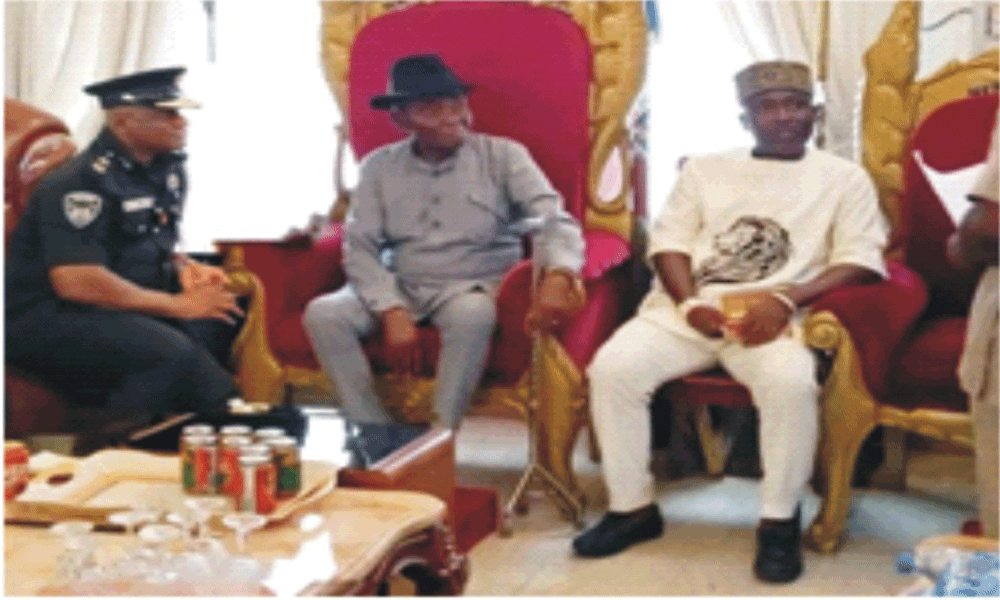Ogonis Demand Overhaul Of HYPREP

Leaders of Ogoni, under the aegis of Gbo Kabari Ogoni have unanimously demanded for a comprehensive overhaul, rejigging and restructuring of the Ogoni Clean-up project across all levels of the current nested structure.
This was contained in a 7 page document circulated at a world press conference by the Gbo Kabari Ogoni, held on Monday, September 7, 2020 in Port Harcourt.
According to the document signed by Senator Dr. Benneth Birabi, Chairman and Dr. Desmond Nbete, Secretary, Gbo Kabari Ogoni.
See full details of the text of the world conference below:
OGONI DEMANDS CLEAN-UP NOT PROPAGANDA AND RHETORIC
Press Briefing
GBO KABAARI OGONI
Since its formation, GBO KABAARI OGONI (Forum of Ogoni Elders and Leaders), driven by a sincere desire to advise and proactively point out fundamental issues and anomalies on matters affecting our people, have repeatedly raised concerns about HYPREP and its performance regarding the Ogoni clean-up. Regrettably, rather than address the issues so raised, HYPREP has instead continued in the unfortunate path of reinforcing failure and engaging in propaganda to cover up its failures at the expense of the health and lives of the hapless people of Ogoni. Some of the issues we drew its attention to earlier, have now snowballed and assumed very complex dimensions. This glaring and woeful state of failure has now come to national and international limelight, thus vindicating our position and the fears we earlier expressed. It is pertinent to note that Amnesty International and other credible organizations commented disapprovingly on the activities and performance of HYPREP. In fact, the United Nations Environment Programme (UNEP), whose mandate it is to actively monitor and ensure compliance of the remediation project with international best practice, has also ventilated the abysmal failure HYPREP so far.
UNEP ASSESSMENT OF HYPREP PERFORMANCE
UNEP in a recent Report pointed to the fundamental failure of HYPREP. From an organizational point of view, UNEP noted that “HYPREP is not designed, nor structured, to implement a project as complex and sizable as the Ogoniland clean-up”. In an analysis showing ten indices for performance evaluation, HYPREP scored an embarrassing 0% in 8 (out of 10). For emphasis, the UNEP assessment table is reproduced below:

Not only are we appalled by this scandalous scorecard and flamboyant failure, but are traumatised by the huge opportunity costs occasioned thereby. In our view, when UNEP recommended the 10 areas for which funds for the project should be expended, it emphasised that these were to be taken as a package and implemented in clusters starting with emergency items and not to misleadingly pick and choose what is considered to have huge potentials for making media headlines. It was thus clear that taken as such, that is, as a package, the clean-up project was to provide employment for our teeming unemployed youths and, in effect, help to drastically address issues of insecurity in our land. This is because, those youths that are not engaged, for instance, for the emergency measures, or alternative employment for those in artisanal refining, or clean-ups, etc., could be absorbed in any of the other areas specified above. The zero score in the eight (8) areas indicated in the table above means, therefore, that we had zero youth employment in those areas, with its very sad consequences on security. We find this unacceptable and it is our view that by any performance metric, the so much harped Ogoni clean-up has failed thus far.
AMNESTY INTERNATIONAL, ENVIRONMENTAL RIGHTS ACTIONIFRIENDS OF THE EARTH NIGERIA (ERA1FoEN), FRIENDS OF THE EARTH EUROPE, AND MILIEUDEFENSIE ASSESSMENT OF HYPREP
Similarly, Amnesty International, Environmental Rights ActionlFriends of the Earth Nigeria (ERAlFoEN), Friends of the Earth Europe, and Milieudefensie in a joint Report titled, “No Clean-up, No Justice,” highlighted the litany of failures in
HYPREP. These include the limited scope of the clean-up; slow progress; flawed clean-up operations; poor monitoring of remediation activities by HYPREP; failure to set up the Centre of Excellence as recommended in the UNEP Report; failure to implement the emergency measures; failure to monitor public health; failure to monitor the environmental impact; lack of community engagement; failure to take steps to prevent future pollution; and lack of expertise among consultants and contractors. The Report also highlighted HYPREP’s institutional weakness, as well as a lack of transparency.
GBO KABAARI’S POSITION ON HYPREP
The positions of both UNEP, Amnesty et al. corroborate our repeated stance on HYPREP. For purposes of clarity, our observations and recommendations are summarized below:
Observations:
1. Structural Defects: HYPREP, as presently structured, cannot function efficiently to deliver on an important and colossal project such as this. The UNEP report which necessitated the establishment of HYPREP highlighted the raging environmental emergency in Ogoniland. HYPREP, as currently structured, is heavily laden with unnecessary byzantine bureaucracies. The two layers of governance- the Governing Council and the Board of Trustees – as well as the complicated ministerial bureaucracies and their overarching and competing influence, all struggle for the attention and control of an Agency (HYPREP)that ought to be focused on implementing the scientific and socio-economic recommendations of the UNEP Report.
Worse still, this complex governance structure is largely composed of political appointees with indefinite tenures of appointment,as well as representatives of the oil companies that polluted Ogoniland, in the first instance. With the majority of members being direct and indirect representatives of the complicit N-structure that led to the pollution, the executive decisions for the clean-up can be easily remotely influenced by these interests. Perhaps equally worrisome is the fact that persons who have been part of the problem in the first place are now being put in charge of critical aspects of the equation. Here, we recall that one Dr Philip Shekwolo, who just retired from his role in Shell as the officer in charge of
‘remediation’ that supervised the cover ups called clean-ups in Ogoni is now the
head of HYPREP’s operations. In fact, Dr Philip just took over in HYPREP from one Musa who was the NOSDRA officer that used to certify the comer-cutting and fraudulent clean-upjobs in Ogoni, whilst the said Musa has been moved back to NOSDRA to certify what would be the eventual product of Dr Philips’ operations in HYPREP. This, in our view, is an insulting conspiratorial arrangement to perpetually under-develop Ogoni. It depicts the manner of games that are played with the lives of Ogoni people; but it has got to stop.
Also, as we have noted before, HYPREPas presently constituted, has no life of its own. It was set up by a Presidential directive (later gazette), and has no legislative instrument to give it a life, impetus and legal personality. HYPREP as presently structured and constituted, exists at the pleasures and mercies of the President. We strongly believe that, that should not be the case for an important project such as this.
2. Contracting: In our previous intervention, we had raised concerns about the opacity, blackbox secrecy, and total lack of transparency in HYPREP’s contracting process. Recent events and revelations have now proved us right. Remediation contracts were reportedly awarded to companies with no iota of experience on remediation, and this has become quite obvious on the field. This calls to question the prequalification process. Remediation is a serious scientific process, and should not be given to newbies learning on the job.
As stated in the UNEP Report, some sites that were previously certified cleaned and remediated were found to be still heavily polluted decades after. The only explanation for this is that contracts were awarded to companies lacking the technology and technological capability, and a complicit regulatory body or personnel that certified the sites as remediated. With the benefit of this sad experience, it should be criminal for HYPREP to repeat same grave errors, and award contracts to contractors with no capacity or proven competence and experience. Sadly, HYPREP is marching on in the same path of failure, wastage and sharp practices, by awarding such an important project to some contractors with no proven experience and pedigree to undertake such complex task.
3. Scoping: Our assessment of the scoping process shows a lack of understanding of the complexities and dynamics of remediation activities. Adopting a generic scoping template, despite the variability of pollution levels and environmental dynamics, could be responsible for the poor scoping by HYPREP. The task of planning and scoping lies with HYPREP and its Project Management Consultant, and we are of the opinion that in order to ensure that this project is properly managed, this role should be revisited to reflect best practices.
4. Emergency Measures: A major item recommended by UNEP as emergency measures has to do with provision of safe drinking water to communities with contaminated water sources. The UNEP Report showed that the people of Nsisioken have been drinking water with Benzene, at levels more than 900 times the WHO threshold. Section 20 of the Nigerian constitution outlines the Nigerian state’s responsibility to ensure a healthy environment. Section 33 of the same constitution guarantees the right to life of a citizen. Sadly, continuously drinking water contaminated with such dangerously high levels of Benzene, a carcinogenic substance, is an obvious threat to this fundamental right of the Nigerian citizen. The continuous refusal to implement this all-important recommendation is, therefore, a serious threat to the corporate existence and sustainability of Ogoni people, who as Nigerians are protected by the Nigerian constitution. We roundly condemn the unfortunate and offensive attempts by HYPREP to downplay the meaning of “emergency” or, perhaps, input a strange into it. Emergency measures means emergency measures!
Another important emergency measure was to embark on a sustained public awareness campaign to warn against the dangers of artisanal refining. Artisanal refining and the pollution therefrom, particularly due to the unsafe standards currently implemented, is a threat to both human life and the HYPREP remediation project itself. The threat of re-pollution from sources such as artisanal refining will undermine any clean-up effort by HYPREP. Unfortunately, HYPREP appears to be on a mission of self-sabotage. It has neither embarked on any sustainable public enlightenment campaign on this nor provide alternative employment opportunities for practitioners of artisanal refining.
5. Delays in Payments and Project Execution Despite Funding: From the UNEP evaluation, an estimated $1 billion is required for execution of the clean-up exercise. While we believe tills may need to be reviewed to reflect the emerging procurement dynamics and inflationary pull, we however, note with displeasure that despite the widely reported $350 million which has so far been earmarked for the project, and despite the clearly outlined recommendations, which ought to be implemented concurrently, the Project handlers chose to implement only one minute segment at snail speed, with an undisclosed chunk of the funds said to be lying in the bank accounts controlled by the BOT of HYPREP with no disclosure as to what interests have accrued there on.
The snail speed in execution is not just limited to HYPREP as an institution; it seems to cascade from the top. For instance, we are aware that the Board of Trustees commenced the process of appointing a Technical Adviser since 2017. The Technical Adviser is supposed to advise the BoT on technical issues, and ensure value for money for all sums remitted to HYPREP. Three years down the line, the Technical Adviser has not been commissioned to start. Thus, the BoT has been operating for 4 years without technical guidance by the Technical Adviser whom they rightly considered necessary to contract.
6. Monitoring and Evaluation: Monitoring and evaluation is an important aspect of the clean-up and remediation process. The obvious failure of the project thus far, would never have happened if HYPREP had an efficient monitoring and evaluation team that would flag early warning signs, and proactively make recommendations. Our findings show that there is a poor monitoring and evaluation mechanism at HYPREP. The results suggest that the Monitoring and Evaluation team are not qualified, and mostly absent.
Furthermore, our investigations show that HYPREP lacks the operational capability and logistical capacity to efficiently monitor and supervise a project of this scale and complexity. The agency lacks the requisite mix of competent personnel as well as operational vehicles and other logistical necessities for an important project such as this.
7. Other Recommendations: The UNEP Report made other key recommendations which HYPREP has failed to implement. Some of these include:
i. Declaration of Ogoni Wetlands as a Ramsar Site: The declaration of the intent to designate Ogoni wetlands as a Ramsar site, in line with the Ramsar Convention. In 2001, Nigeria became a contracting party to the Ramsar convention, and currently has 11 Ramsar sites (See page 227 of the UNEP Report). Sadly, nine years after the submission of the report to the Nigerian Government, this has not been done.
ii. Decommissioning of Oilfield Facilities: Part of the Operational Recommendations the UNEP Report is the decommissioning of abandoned oilfield facilities. This should be preceded by an environmental due diligence assessment, and an inclusive programme to incorporate feedback from Ogoni people (See page 205 of the UNEP Report). Sadly, this has not been done.
iii. Public Health Monitoring: The Report also recommends that a public health registry should be established for the entire Ogoni population. The purpose of this is to track any health trends, and proactively respond in a comprehensive manner (See UNEP Report, page 217). HYPREP has jettisoned this important recommendation thus far.
iv. Health Follow-up: The UNEP Report recommends the follow-up and tracking of residents of communities in Ogoniland, with prolonged exposure to hydrocarbon pollution (See page 215 of the UNEP Report). Almost a decade after, this has not been done. As elders, we are even more concerned given the spike in disease burden, including dangerous health trends, and unprecedentedly high death rate in Ogoniland.
v. Air Quality Monitoring – The Report recommends a comprehensive air quality monitoring programme across Ogoni, to track ongoing pollution. This is an important proactive practice for public health contingency planning and progress tracking. HYPREP has so far failed to implement this, and we are deeply concerned about the recent spike in respiratory and cancer cases in Ogoni.
CONCLUSION
The nested failure of HYPREP as itemized by both the UNEP and Amnesty
International et al corroborates our position on HYPREP. We have always made our positions known that the recommendations of the UNEP Report should be implemented transparently, and we will continue to do so. The opacity of HYPREP’s activities, and the histrionics of its inefficiencies, is at complete variance with the recommendations of the UNEP report as well as global best practices.
Unfortunately, rather than address these issues which we have raised repeatedly, and which other reputable organizations have corroborated, HYPREP has invested much of the time and resources at its disposal in radio and social media propaganda. Ogoni people need their land remediated, not the unending “radio remediation.” As elders, we will not compromise the health of our people. and the non-implementation of these emergency measures amounts to deliberately undermining the health and wellbeing of Ogoni people, and indeed all residents of Ogoniland.
Once again, we restate our commitment to support any genuine clean-up process to succeed; but that can only happen when the right thing is done. The reason for our numerous interventions is to help the process succeed. Like they say, what an elder sees while sitting, a child cannot see while standing. As elders and leaders, we will continue to make available. our vast experience and the range of our vision, for the project to succeed.
Finally, we note with cautious optimism, the recent comments by the Honourable Minister of Environment to review the performance challenges in HYPREP. The issues we have raised consistently are fundamental, and we hope that the Honourable Minister will take steps to address them. As a people, what we need is the clean-up of our environment, and NOT the unending propaganda and rhetoric by HYPREP. Our prayer is simple: The Federal Government should, as a matter of national urgency, put an end to the current sophistry epitomized by the failed clean-up efforts in Ogoniland.
To this end, we call for the comprehensive overhaul. re-jigging and restructuring of the Project across all levels of the current nested structure. This is the first step to getting the clean-up on track.




